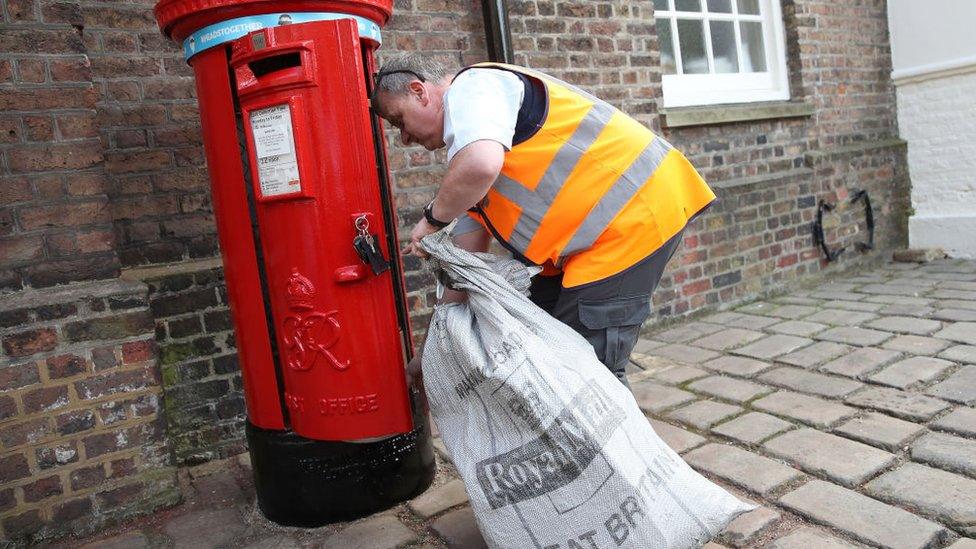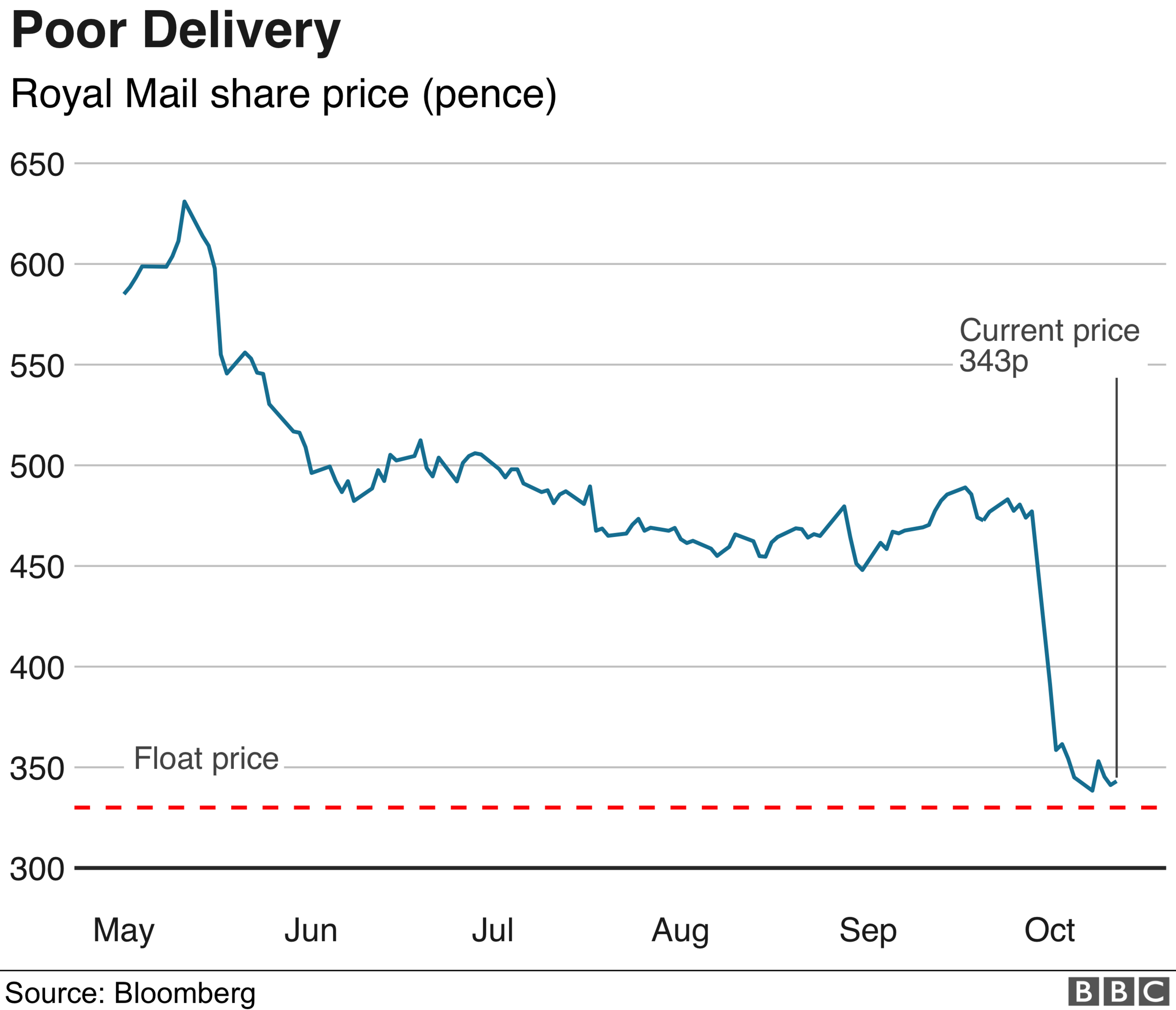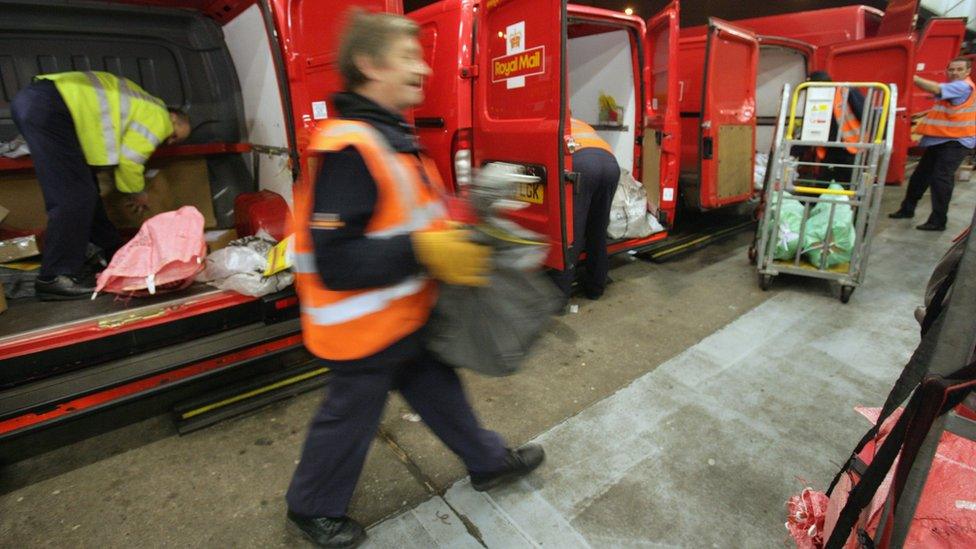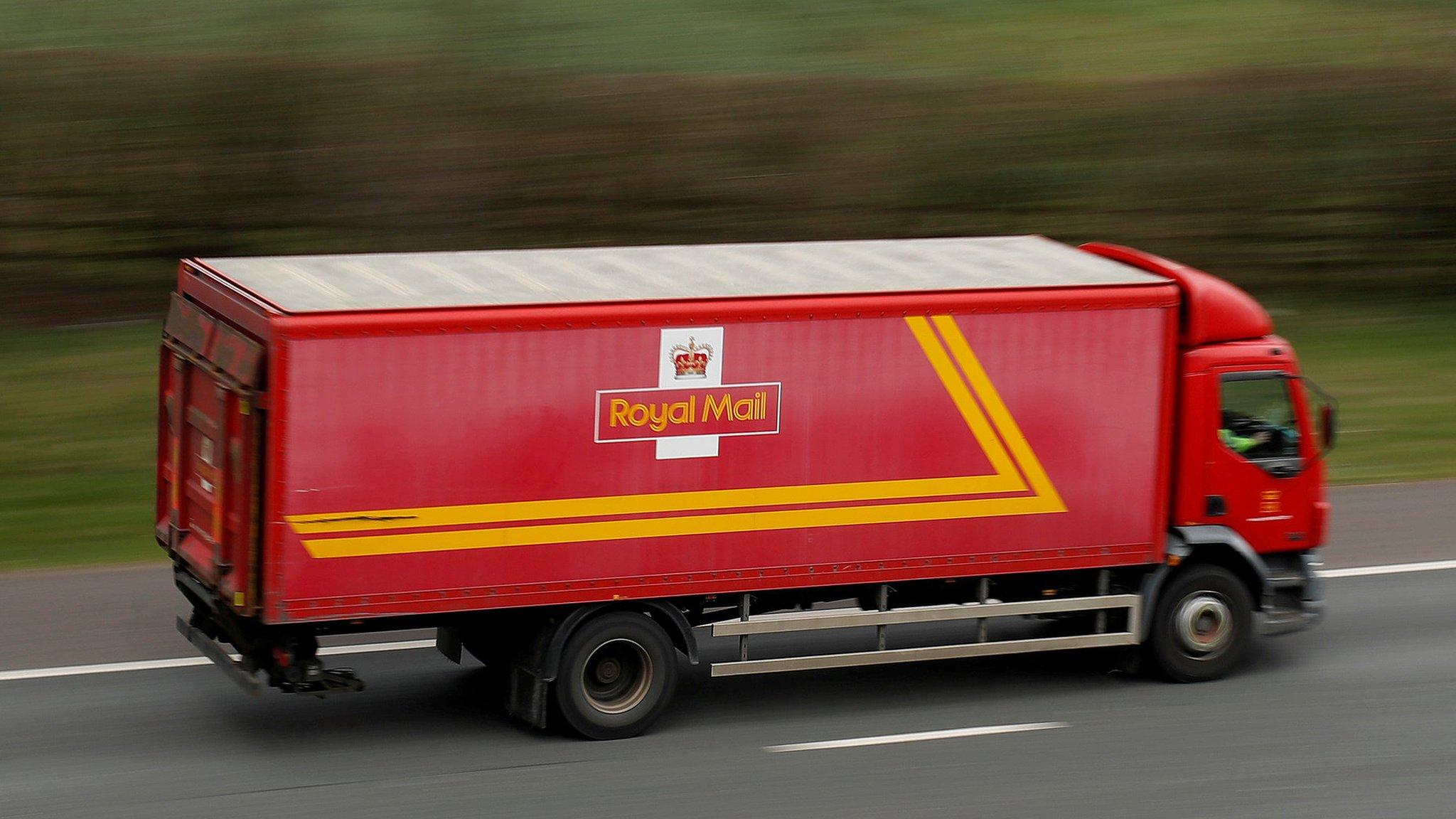Royal Mail staff claim their shares were sabotaged
- Published

Hundreds of Royal Mail staff have complained that they have been short-changed as a result of a dramatic fall in the company's share price.
They claim the privatised company deliberately issued a profit warning weeks before many were planning to sell their shares.
Since the announcement on 1 October the shares have fallen by 28%.
However Royal Mail said it had no choice but to tell the City as soon as it realised profits would be lower.
Some 145,000 postal staff have waited five years to sell the free shares they were given at the time of privatisation.
Monday is the first day they can sell their holdings without having to pay tax or National Insurance.
The shares have fallen by 45% since they peaked at 632p in May this year, with some staff seeing the value of their holdings slipping by more than £2,500. The shares are now just 13p above the original flotation price of 330p.

Anger
Des Arthur, a postman from Coventry, was one of those who complained about the company's announcement to the City.
"The timing of it could be viewed as extremely cynical," he told the BBC.
"It's going to look like it's not right."
The Communication Workers Union (CWU) said hundreds more staff had expressed their anger.
"Our members certainly believe it's just been done to deflate what they would get if they sold their shares," said Terry Pullinger, deputy general secretary of the CWU.
"You know what people are like; people in some ways have already spent that money in anticipation."
'Happy'
Royal Mail said it understood the disappointment felt by its staff, but said it had no choice over when to release the profit warning.
"We had an obligation to tell the market, and that's what we did," a spokesperson told the BBC.
"There's no link between that and the free shares."
However the company said anyone who pre-elected to sell their shares before 1 October would be able to cancel their transactions.
Other employees said they were happy just to have been given free shares in the first place.
"I'm not annoyed," said Adam Alarakhia, a postman from Leicester, whose holding is now worth around £2,700.
"The price will shoot up again in our busy period."

Should staff sell?
Most brokers have Royal Mail shares down as a "sell" - in other words they expect the shares to fall further.
Berenberg has a target price of £3.
But the further they fall, the higher the percentage yield. At the moment the annual dividend is a healthy 7%.
Indeed so far employees who took their full allocation will have earned £850, Royal Mail said, making up for some of their theoretical (on-paper) losses.
"Management have recently reconfirmed their commitment to growing the dividend over time, but with investment demands likely to rise, we find it difficult to see how far that can go," said Nicholas Hyett of Hargreaves Lansdown.
"Nonetheless, for income seeking investors Royal Mail could well be attractive."
The original privatisation of Royal Mail was criticised by the National Audit Office, external, which said that taxpayers had lost £1bn, because the flotation price was set too low.
- Published1 October 2018
